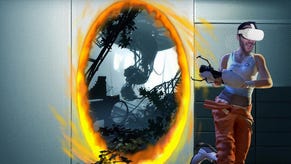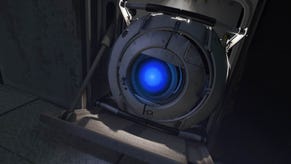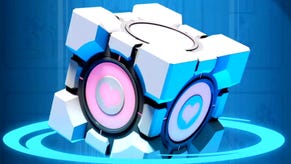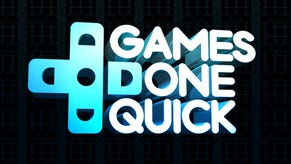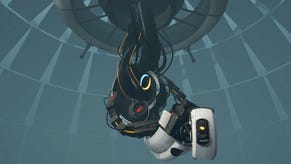Face-Off: Portal 2
Through the looking glass.
First off, let's remind ourselves of how things ran on The Orange Box, with a comparison of what you might imagine would be the best and worst case scenarios. Portal, with its enclosed environments, shouldn't really stress out the Source engine too much while at the other end of the spectrum, Half-Life 2: Episode 2 was the most technologically demanding game in the compilation.
The analysis demonstrates that while either version could drop frames, Valve's own Xbox 360 code was fairly solid while the PS3 port was simply dreadful, with performance issues across the board.
The good news is that things have changed with Portal 2. There were never any real frame-rate problems with Source on Xbox 360 and nothing has really changed here, but it's clear that Valve has put some genuine effort into the way Source runs on the PlayStation 3. This is no one-off project: the studio has clearly put significant resources into the development of its engine on the Sony platform and the results are self-evident, over and above the minor graphical improvements we see over the Xbox 360 game.
Performance analysis of Portal 2 suggests that while both games run very close to the target 30 frames per second almost all of the time, there are some occasions where we see the odd torn or dropped frame on Xbox 360 - there's no real impact to visual quality, controller response or anything like that, but it is interesting to note that these very minor issues with frame-rate are even less of an issue on PlayStation 3.
In common with a great many PS3 titles there is a tear evident in the top couple of lines (suggesting that the game is flipping the framebuffer just a little too late) but it's invisible to the human eye. Tearing on 360 can creep lower to the point where very occasionally you might notice it, but the overall impression is that image consistency is retained on both versions.
Performance analysis on Portal 2 is an interesting challenge - how best to stress the engine bearing in mind the relatively sedate nature of the game? And how can we do it by showing as few spoilers, or puzzle solutions as possible? Well, in this section of the game, taken around a third of the way through, the player is simply running through various environments in a linear manner, and not actually solving any puzzles at all. From a rendering perspective, the levels here are typically more complex than the puzzle-based stages, giving us the ideal testing ground to compare engine performance.
Regardless though, if you're overly sensitive to any spoilers whatsoever, it's probably best to skip the video.
So with improvements to visual quality and performance, the PlayStation 3 release is already looking good, but the addition of Steamworks functionality is another big plus point it has in its favour. On the face of it, the notion of adding a second gaming network to the PS3 sounds somewhat superfluous and perhaps overly fussy, bringing back unhappy memories of multiple logins required for games like Metal Gear Solid 4.
However, the actual implementation in Portal 2 is relatively unobtrusive, it isn't mandatory, and it simply adds value. By linking your PSN profile to a Steam account, Trophies and Achievements sync, meaning that the same unlocks are visible on both networks. You can also chat across the Steam network to gamers currently logged in on PC, Mac or PS3 and view their profiles. Game saves from PS3 Portal 2 can be uploaded to the cloud and then re-downloaded again on any other PS3 - without the need for a PlayStation Plus subscription.
Best of all is the introduction of cross-format gameplay in Portal 2's co-op mode. PS3 owners can team up with other players on PC, Mac or PS3 and play through the co-op campaign together. Because you're playing as a team, and as control-related issues such as accuracy and latency aren't hugely important to the gameplay, it doesn't really matter if one player in the team is using the superior mouse/keyboard combo. Obviously this could be something of a problem on player vs. player titles though.
If you have no interest in Steam and would prefer simply to play online with other PS3 owners, that option is there - there's no actual need whatsoever to utilise Steam at all, but the feature set is very cool if you do, and the bonus of a free download of either the Mac or PC version of Portal 2 via a one-use redeemable code included with every copy of the PS3 version is too good to resist.
Going forward, it's likely that Valve would be happy to extend the Steam functionality to other game developers, which could lead to more PS3 titles making use of the features we see here in Portal 2. However, to sound a note of caution, it's worth pointing out that the PS3 already has a deficiency of available RAM compared to the Xbox 360 bearing in mind the higher OS overhead and the added complications of the split-pool RAM setup, so the notion of dedicating memory and resources to the Steam client may not appeal to too many developers.


